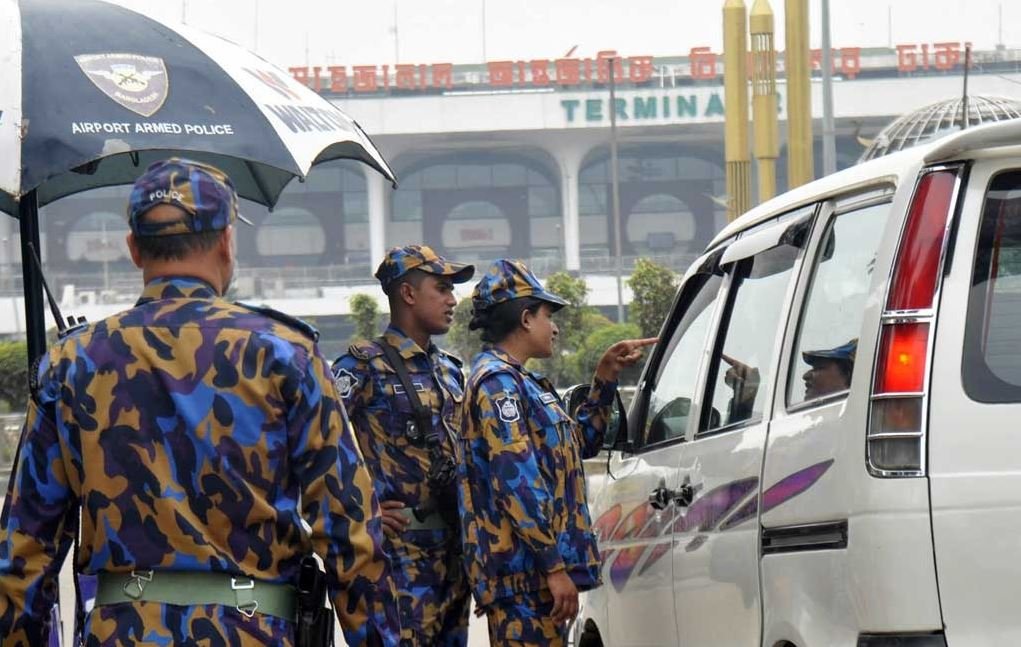If an international criminal tries to enter, the immigration authorities will be notified in advance, and the criminal will be deported. Such technology, the Advanced Passenger Information System (APIS), is being integrated by the Civil Aviation Authority of Bangladesh.
What is APIS?
APIS stands for Advanced Passenger Information System, is a system that enhances border control and combats illegal entry into a particular area, as well as illegal passage through the international transit zone of airports. Air carriers are required to provide passenger information to border control authorities before flights, allowing them to conduct an initial passenger screening and prepare more effectively for specific flights. This system helps in the fight against international organized crime, terrorism, espionage, and preparatory acts related to the illegal trade of weapons and radioactive substances, as well as illegal technology transfers.
You can also read: What to know about Russia’s withdrawal from the New START treaty?
How Bangladesh will implement the system?
The Civil Aviation Authority of Bangladesh is planning to introduce an APIS technology at Hazrat Shahjalal International Airport in Dhaka to enhance border control and prevent the entry and exit of international criminals. With this technology, immigration authorities will receive advance information about any international criminal attempting to enter the country, and if any top criminals in the country attempt to leave.
The system will enable identification of criminals who fly through the airport, making it possible to stop their arrival and departure. CAAB expects to play a significant role in combating international organized crime since the airport receives over 40 lakh international passengers annually. At present, it is challenging to identify passengers engaged in illegal activities such as drug trafficking and human smuggling. However, the integration of APIS in the system will facilitate the identification of such passengers.
How will it work?
Biometric data and flight information of all crews and passengers on a flight from any other airport will be collected mainly through APIS. The task of gathering information will be completed while purchasing the tickets. Then the information will be passed on to the immigration authorities of Bangladesh through APIS before the plane takes off. All aircraft crews will be automatically analysed before the information from APIS goes to the immigration authorities.
The APIS will analyse and verify the names of the passengers of the aircraft against a list of national and international criminals. The variety of names, spellings of names, parts of names will also be considered. As a result, APIS will inform the immigration authorities as soon as the suspect is found. Similarly, if a criminal wishes to leave the country via an international airport, APIS will notify immigration authorities prior to issuing a boarding pass.
Why is APIS needed?
Bangladesh is a member of the United Nations (UN) and the International Civil Aviation Organization (ICAO). The country is obliged to implement APIS technology to ensure inland security as directed by the two agencies. Otherwise, there could be a ban on flight operations internationally.
Therefore, a committee was formed to implement APIS at the meeting of the National Civil Aviation Safety Committee in 2011 as part of fulfilling obligations and tackling crime. In 2019, CAAB started to implement APIS through contractual agreements. Three institutions in Canada, France, and the United Arab Emirates are interested in participating in the tender. CAAB later took the initiative to implement the project through G2G (government-to-government) deals.
Recently, proposals for the implementation of the APIS project came from Canada and the United Arab Emirates. However, during a Ministry of Civil Aviation and Tourism meeting on January 2, 2022, it was decided to exclude Canadian institutions and implement the project through a United Arab Emirates organization. Subsequently, the Civil Aviation Authority of Bangladesh (CAAB) signed a memorandum of understanding with Etek-Emirates Technologies Solutions LLC, a UAE-owned company, on December 26, 2022. The company will use seater technology and software to establish the APIS system in Bangladesh.
Estimated cost of APIS
At this time, it is unknown what the cost will be after the APIS is operational. However, according to a CAAB source, implementing APIS could cost between BDT 40 to 50 crores. Emirates Technologies will invest this money. In return, CAAB will pay the company a fixed rate every year. According to the initial discussions, an additional $3.5 per passenger on the international route may be levied as a fee for the use of APIS. This fee must be paid by the passengers.
According to CAAB estimates, the project could take up to two years to be operational. And there could be an eight-year deal for the UAE with CAAB. At this point, the annual number of international passengers may be around 47 lakhs. According to them, about BDT 140 crore may be collected as a fee from these passengers. What they will do next is unknown at this time. Regarding this, a CAAB official said that CAAB would receive 20 percent of the total fee. He added that there was an opportunity to benefit financially if CAAB engaged themselves instead through the UAE.
Furthermore, CAAB Chairman Air Vice Marshal Mofidur Rahman said that a memorandum of understanding has been signed for the implementation of APIS. They have offered a technical proposal, which is being verified. Financial matters will then be proposed by the organisation. There will be a final agreement after verification. Then the process of implementing APIS will start.


